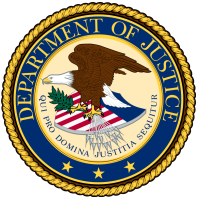
Judge Grimm also ordered Sean and Eric Gallman to pay restitution to the IRS of $16,512,492; and forfeit the amount of the refunds paid by the IRS, including $11,529,954 seized from numerous bank accounts; foreign currency and gold and silver coins seized from a residence in Upper Marlboro; nine residential properties located in Upper Marlboro and Laurel, Maryland, North Carolina and South Carolina; and two Mercedes-Benz vehicles and a Hyundai vehicle.
The sentences were announced by United States Attorney for the District of Maryland Rod J. Rosenstein; Acting Assistant Attorney General Caroline D. Ciraolo of the Tax Division of the Department of Justice; and Special Agent in Charge Thomas Jankowski of the Internal Revenue Service—Criminal Investigation, Washington, D.C. Field Office.
"These two criminals filed bogus tax returns claiming 'refunds' that were not owed, and stole over $16 million from the IRS," said U.S. Attorney Rod J. Rosenstein. "Federal agents and prosecutors have a duty to pursue perpetrators of such fraud schemes and try to recover money stolen from the United States Treasury."
"The Gallman brothers engaged in a willful and deliberate scheme to steal from the U.S. Treasury and in turn, U.S. taxpayers," said Acting Assistant Attorney General Ciraolo. "The Department will continue to aggressively investigate and prosecute individuals and entities engaged in this criminal conduct, and will seek substantial prison terms, fines and full restitution to hold defendants accountable and send a strong message to potential offenders."
"Using the U.S. Treasury as a personal piggy bank to obtain millions of dollars in fraudulent refunds, the Gallman's not only showed their blatant disregard of the law, but also for the American taxpayer," said Thomas Jankowski, Special Agent in Charge, IRS Criminal Investigation, Washington D.C. Field Office. "Today's sentencing's emphasize that such greed based criminal behavior comes with a cost."
According to court documents and evidence presented at the sentencing hearing, Sean and Eric Gallman established trusts and business entities, and used mailboxes at numerous private commercial postal carrier stores in Maryland and North Carolina as the addresses for the trusts and business entities. The defendants, acting as trustees and agents, mailed fraudulent tax returns to the IRS in the names of the trusts and businesses requesting refunds.
For example, in January 2013, Sean Gallman mailed to the IRS a fraudulent 2012 tax return in the name of the Gallman Charitable Trust, requesting a refund of $8,218,930. Also around this time, the defendants mailed to the IRS a fraudulent 2012 tax return in the name of LEA Group Holdings Trust, requesting a refund of $8,293,562. The defendants knew that the trusts were not entitled to the tax refunds. After receiving refund checks in these amounts, on February 15 and March 11, 2013, the defendants deposited the two refunds in bank accounts they controlled. To hide their receipt of these refunds, the defendants used cashier's checks and other financial instruments to transfer a portion of the money to third parties and other bank accounts.
Altogether, the Gallman brothers filed approximately 46 fraudulent tax returns seeking refunds totaling $224,676,998, for which the IRS paid two refunds totaling $16,512,492.
United States Attorney Rosenstein and Acting Assistant Attorney General Ciraolo praised IRS-Criminal Investigation for its work in the investigation and thanked Assistant United States Attorney Thomas P. Windom and Trial Attorney Erin Pulice of the Department of Justice Tax Division, who prosecuted the case.


